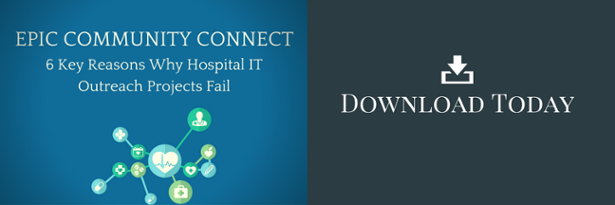 Scott Jacobs, Vice President HCI's Outreach Services takes a look at how technology partnerships can benefit community physicians.
Scott Jacobs, Vice President HCI's Outreach Services takes a look at how technology partnerships can benefit community physicians.
Provisions from the Centers for Medicare & Medicaid Services (CMS) and other regulatory requirements will drive the independent physician, physician group and small hospital to seek assistance from a host or larger organization.
They must belong to at least one affordable care organization (ACO), for example, in the near future. Otherwise, they will have virtually no patients.
Traditionally, hospitals have employed physicians and then not employed physicians as the regulatory environment cycled back and forth through the last several decades. Today, hospitals, even the large systems and integrated delivery networks (IDNs), do not have the resources to employ large enough numbers of physicians to satisfy the “big data” requirements needed to manage patient populations.
A community engagement strategy provides a solution. These strategies can come in many forms but many organizations are finding that extending their electronic health record (EHR) system is the cost-effective way to grow their network due to increases in the capabilities and lower costs of EHR technology.

These community outreach programs cost a tiny fraction of what it would require to purchase or merge with a provider organization or small hospital and yet they still produce the majority of the benefits of a traditional “merger.” An extension program, or “data merger” as it is also called, can offer affordable technology solutions while maintaining the fiercely independent physician’s ability to practice medicine in the way they desire. The physician receives a host of benefits from this arrangement in addition to remaining independent: a robust IT infrastructure with security and professional management, world class EHR and other systems, informatics reporting for Meaningful Use and means to fulfill other regulatory reporting requirements that are not conducted by clinical staff for example.
In marketing your community outreach program, you must begin with physician leadership and champions as well as existing customers. Successful marketing campaigns are best when your offering goes ‘viral’ in the physician’s lounge, but getting there takes work and a plan. Often programs are well designed and have technically precise project plans; yet the community has never heard of your offering.
You are competing with companies that spend millions on marketing to your potential customers. They have slick brochures, fancy websites and smooth talking sales staff. You have none of this but what you do have is more valuable than anything they can bring to bear. You have a relationship.
You can succeed by leveraging your relationship with the community through grand rounds, graduate medical education (GME) sessions, section meetings, physician newsletters, MSO or Foundation meetings and Medical staff meetings in addition to “traditional” marketing efforts.
Additional Resources that May Interest You: